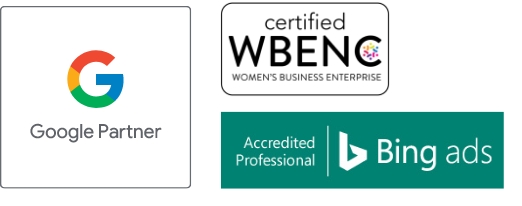
Beyond Data: How Storytelling Can Transform Your Healthcare Brand
In healthcare marketing, stories are more than just anecdotes – they transform perceptions, relationships, and even outcomes. For example, a health system focuses on a young mother facing a daunting diagnosis. Her story, told through the lens of her compassionate oncologist, not only humanizes the hospital but can also inspire others who are battling similar challenges. Storytelling like this can break the cold, impersonal stereotypes often associated with health systems, replacing them with narratives of warmth, compassion, and genuine connection. When done well, these stories attract patients and inspire staff, donors, and the community at large.
HOW DOES NARRATIVE MARKETING BENEFIT HEALTH SYSTEMS?
Narrative marketing, when applied strategically, can be a game changer for health systems, delivering benefits that extend far beyond traditional marketing approaches:
- Forge Emotional Connections: Stories have the power to move people, evoking emotions like empathy, compassion, and hope. By sharing patient journeys, staff experiences, and the impact of their work, health systems can forge deep emotional connections with their audience. These connections foster trust and loyalty, making patients more likely to choose their services and recommend them to others.
- Humanize Your Brand: Health systems are often perceived as large, impersonal institutions. Narrative marketing allows you to break down these barriers by spotlighting the human side of your organization. Sharing the personal stories of your staff and patients helps to create a warm, approachable brand image that resonates with your community.
- Stand Out in a Crowded Market: In the competitive healthcare landscape, you either stand out or you disappear. Narrative marketing gives you a unique way to differentiate yourself by telling your organization’s story in a compelling and memorable way. Techniques like patient testimonials in video format, showcasing a “day in the life” of your staff through social media stories, or even delving into the human side of healthcare with an engaging podcast series can all help you capture attention and leave a lasting impression. This approach attracts new patients and fosters stronger relationships with partners and donors.
- Boost Staff Morale and Recruitment: Sharing stories that celebrate your staff’s dedication and achievements can significantly boost morale and create a sense of pride in the organization. Imagine a social media campaign featuring short videos of nurses sharing their most rewarding patient interactions or a blog series highlighting the innovative research of your physicians. These stories recognize your team’s hard work and demonstrate the fulfilling and impactful nature of careers within your health system. This positive culture, demonstrated through authentic storytelling, becomes a magnet for attracting top talent seeking a meaningful and supportive work environment.
- Enhance Community Engagement: Share stories that resonate with your community to foster a sense of connection and involvement. This can lead to increased support for your initiatives, greater participation in community health programs, and a stronger overall relationship with the people you serve.
WHAT DOES IT INVOLVE?
Creating impactful narrative marketing involves more than just telling stories; it requires a strategic and thoughtful approach. Here are the key elements to consider:
Strategic Planning: Before diving into storytelling, define your business goals and ensure your narratives genuinely align with them. While you should consider the desired emotional impact of your stories, the primary focus should be on sharing authentic narratives that resonate with your audience. This involves digging deeper into your organization’s mission, values, and the lived experiences of your staff and patients. By prioritizing truthfulness and transparency, you can craft compelling stories that further your business goals and build lasting trust and connection with your community.
Authenticity: The heart of narrative marketing lies in authenticity. Your stories should be genuine, reflecting your organization’s values and mission and the real experiences of your staff and patients. While respecting HIPAA regulations, strive to share stories that are honest and transparent to build trust with your audience and create a deeper connection. With proper consent, you can still capture the essence of real experiences while protecting patient privacy.
Real-Life Heroes Overcoming Adversity: Every impactful story features people who face and overcome challenges. In healthcare narrative marketing, these inspiring figures could be patients bravely battling illnesses and injuries, dedicated staff members going the extra mile to provide exceptional care, or even your organization as a whole working toward a shared goal. Showcase their resilience, determination, and the genuine human experiences that connect us all.
Clear Call to Action: A powerful story should inspire action. Whether encouraging patients to seek care, inviting community members to participate in a health initiative, or inspiring donors to contribute to a cause, make sure your narrative has a clear directive that aligns with your goals.
Structured Storytelling: While real-life stories may not always perfectly mirror a fictional “Hero’s Journey,” a structured approach can still enhance their impact. Consider the core elements: a call to action (a diagnosis, a community need), the challenges faced (treatment, fundraising obstacles), the turning point (a breakthrough, a generous donation), and the ultimate outcome (recovery, a successful program). By shaping your narratives around these key moments, you can create compelling stories that resonate with your audience, even if the path isn’t always linear or predictable.
Incorporating these key elements into your narrative marketing efforts will help you craft stories that inform and inspire, connect, and ultimately drive meaningful action.
TIPS FOR SUCCESSFUL HEALTHCARE NARRATIVES
Here are three tips to help you create narratives that resonate with your audience and drive meaningful results.
Abide by a Simple Story Arc: Every great story follows a basic structure, and healthcare narratives are no exception. By adhering to a simple story arc, you can create engaging and impactful content that captures attention and inspires action.
Example: Patient Journey Story
Characters: Maria, a young mother diagnosed with breast cancer; Dr. Smith, her compassionate oncologist
Setting: A local hospital’s cancer treatment center
Conflict: Maria’s fear and uncertainty about her diagnosis and treatment
Resolution: Through Dr. Smith’s expertise, a supportive care team, and innovative therapies, Maria successfully completes treatment and returns to her family with renewed hope and strength
By following this simple structure, you can craft stories that highlight the challenges, triumphs, and human experiences that make healthcare meaningful.
Use Real Patients and Employees: Nothing resonates more deeply than authenticity. Incorporate real patients and employees into your storytelling efforts, showcasing their faces, voices, and stories through videos, photos, and written testimonials. This approach adds credibility to your message and creates a powerful emotional connection with your audience.
- Video: Produce short documentaries or interviews that capture the personal journeys of patients and the dedication of your staff.
- Digital: Share patient testimonials and staff stories on your website, social media channels, and email newsletters.
- Print: Include patient photos and stories in your brochures, annual reports, and other marketing materials.
Prioritizine Privacy and Consent: Prioritize patient privacy and obtain proper consent before sharing their stories; it’s the law. Always adhere to HIPAA regulations and any additional state or local privacy laws. Work closely with your legal and compliance teams to develop clear consent forms and protocols to ensure patient confidentiality and protect sensitive information. Transparency with patients about how their stories will be used is crucial to building trust and maintaining ethical storytelling practices.
In today’s competitive healthcare market, telling your organization’s most meaningful stories is the way to stand out. If you need help identifying the right stories and storytellers within your hospital, healthcare system, or practice, or you’re not sure where to start, LIGHTSTREAM is here to help. Contact us today.
